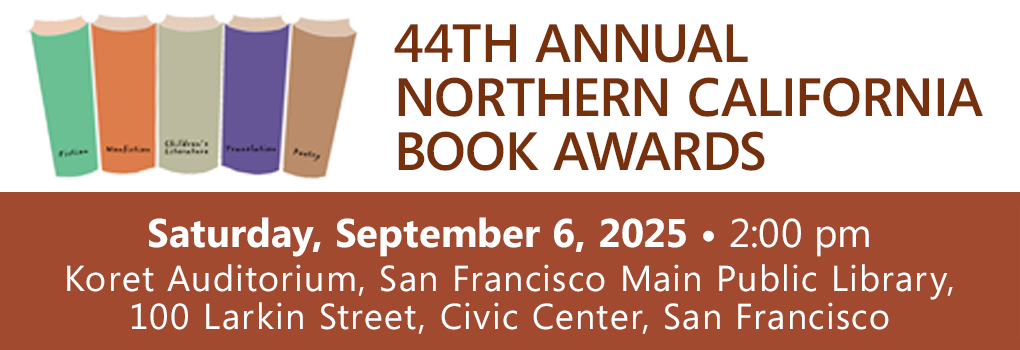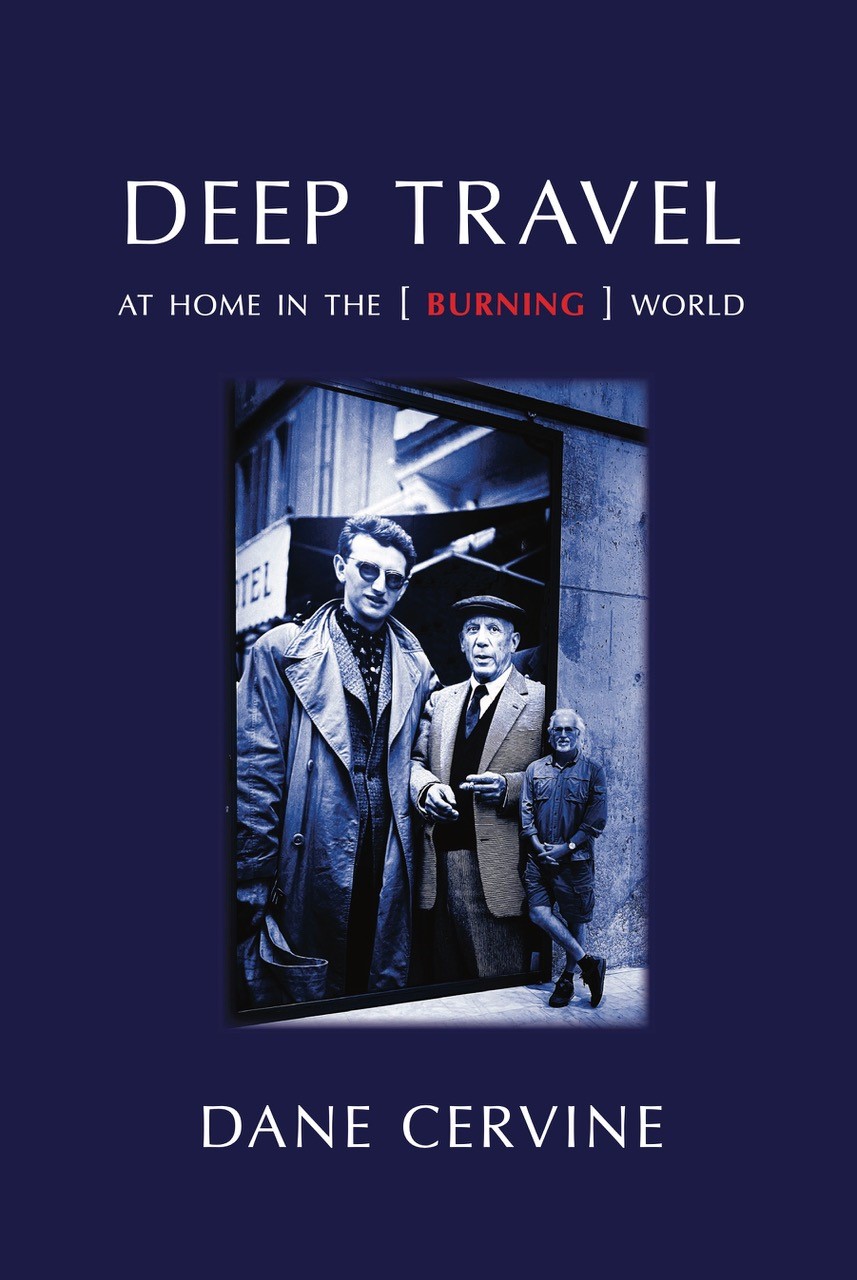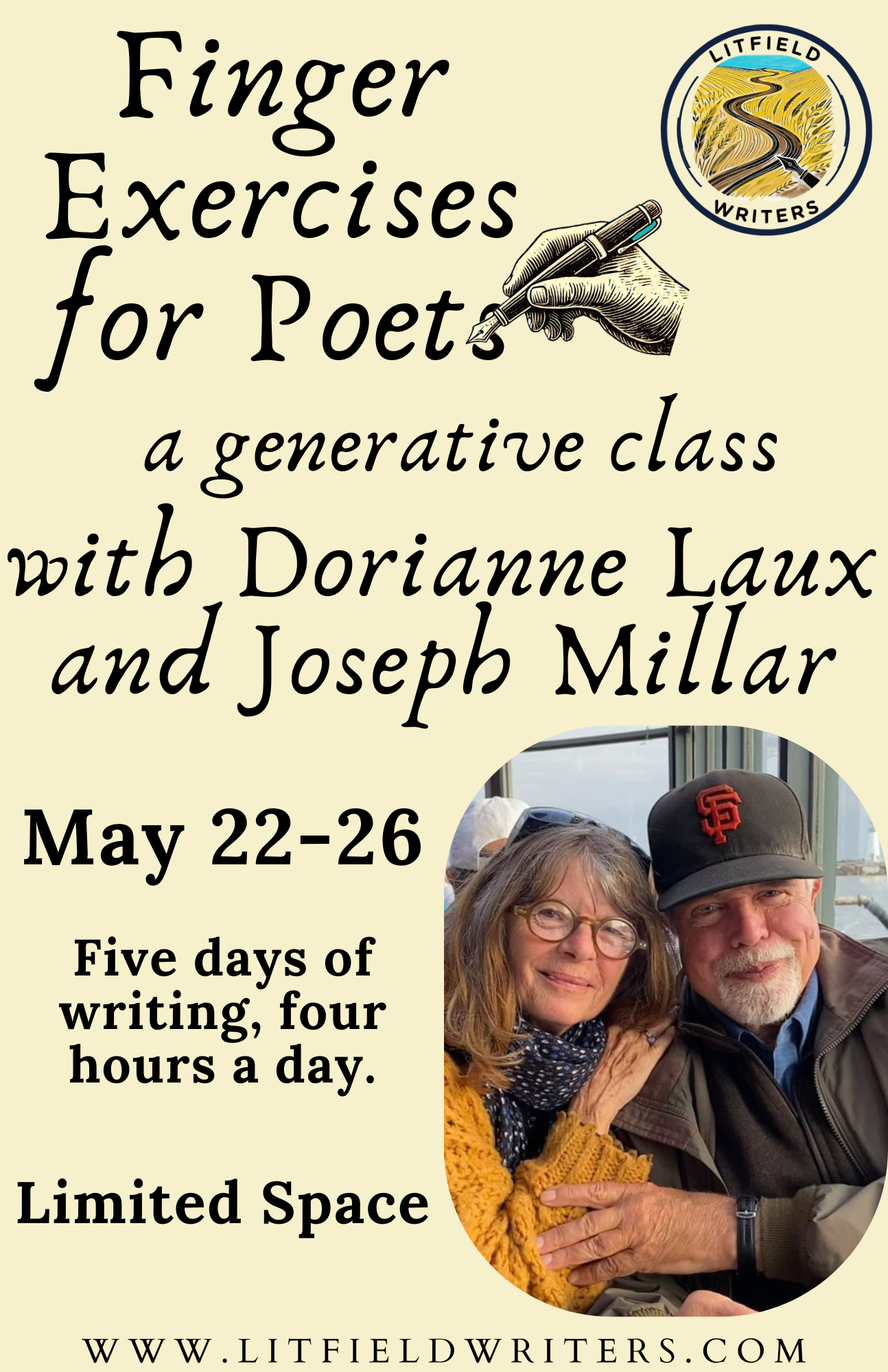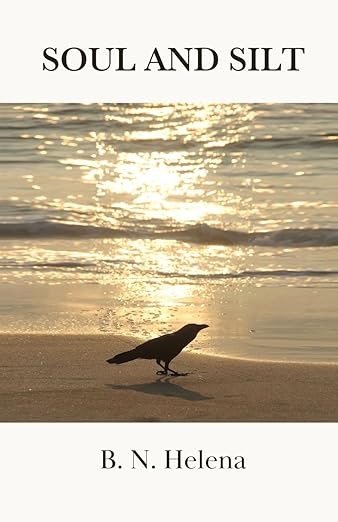
Shooting the Canon
An Interview with Marilyn Chin
by Ken Weisner
Marilyn Chin was born in Hong Kong and raised in Portland, Oregon. Her poetry invents unforgettable voices and forms of Pacific Rim assimilation and resistance. Chin has published four full-length collections of poetry—Dwarf Bamboo (Greenfield Review Press, 1987); The Phoenix Gone, The Terrace Empty (Milkweed Editions, 1994); Rhapsody in Plain Yellow (Norton, 2002); and Hard Love Province (Norton, 2014). In her 2009 novel, Revenge of the Mooncake Vixen (Norton), Chin constructed a new kind of pastiche fiction, a feminist magical realism built from both ancient Chinese (erotic ghost tales) and contemporary Asian and American (Manga, Kungfu) character concepts and narrative modes. Chin has won numerous awards and fellowships, including the PEN/Josephine Miles Award, multiple Pushcart Prizes, a Fulbright Fellowship, a Stegner Fellowship, the Paterson Prize and further fellowships from the Radcliffe Institute at Harvard, the Rockefeller Foundation and the National Endowment for the Arts. Widely anthologized, her work was featured on Bill Moyers's PBS series The Language of Life. Chin's spirit of experimentation continues in Hard Love Province, which insistently and compellingly stretches traditional forms and expectations. Chin's lyric surfaces create an overarching tone of surfeited determination—less the groan under empire, more the yawp of a fierce resistance. Multiple exiles and losses (political, cultural, personal, linguistic) haunt Chin's work, which always employs a thousand shades of irony, magnificent craft and an exhilarating freedom of expression. I was grateful to speak with Marilyn late this past summer about Hard Love Province.
Ken Weisner: Your elegiac frame to Hard Love Province lasts into the volume's third poem, "Nocturnes," where that poem's evocative insomnia stretches out the poles of consciousness, brings us our first steps down the rabbit hole. Tropes of disjunction like Pol Pot's ex-wife learning ikebana and pondering "the beauty of the symmetrical" explode into juxtapositions like "A pretty boy dances naked in a cage"—as briefly, you give that boy a voice. Any beauty is soon marred, interlaced, with images of predation or decadence. With "Nocturnes," Hard Love Province remains elegiac, but also brings on fragmentation, rage, existential despair. It's a powerful poem.
Marilyn Chin: I started having sleep problems before my boyfriend died, a kind of midlife thing. But after his death, I couldn't sleep for months and became reliant on various sleeping pills and potions. I would fall asleep for an hour and wake up with heart-pounding anxiety and anguish. Years ago, my friend Kit compiled a CD of nocturnes for me. Mostly Chopin. During my mourning period, I played the CD in the middle of the night and cried loudly and wrote fragments. Bits of images, songs, history, persons, ghosts, animals…spoke to me in whispers, songs and floated into my imagination. I tried to give voice to them, let them speak without imposing any narrative or political intentions.
We move from a child staring at a strawberry pie at Marie Callender's to Pol Pot's wife learning the art of Ikebana, a boy dancer in Thailand, a rabbit proof fence in the outback, a junkie stealing flowers for his mother's grave…and end up with aural images of large sexy male crooners: Elvis, Barry White, Israel Kamakawiwo'ole…who, along with Chopin, come in the end of the poem to serenade me, rock me to sleep.
We are all united in grief and in love and in music. We are all in this journey together. These are shared images. Be they beautiful or horrific, or strange or insouciant, they are inscribed in our memories—silent souls who inhabit this body for just a brief moment on earth.
KW: In an interview earlier this summer with Nissa Parmar, you spoke about your quatrains as "a happy hybrid of the Chinese jue-ju cut-verse form and the English song quatrain." You mention Mirabai, Wang Wei, Li Bai, Tu Fu, Auden, Dickinson, Bob Dylan, railroad ballads—I imagine Hồ Xuân Hương as well—all as influences on your preferred stanza form—with lines and tone often influenced by the blues, even nursery rhymes. Both the quatrain (with and without caesura) and the double quatrain serve you so well in Hard Love Province. As with Dickinson, this loose and flexible quatrain becomes the ideal container for all the strategic distortions, ghosts, and layerings of irony you can imagine—nearly limitless.
MC: Yes, the quatrain is a beloved ancient song form. I read thousands of quatrains to absorb the variations of the form. I just had wonderful fun and tried to exhaust the possibilities. Sometimes the quatrain can be a closed nugget…sometimes it's open and airy and ethereal…sometimes they are breathtakingly beautiful, sometimes they are weird and sexual and pornographic. And even scatological! And I hope that a lot of them are hilarious. One has to laugh in a book of elegies! I can't let grief win over love.
Sometimes, I give silent pauses, caesuras and "breaths" within the quatrain to make the reader contemplate between words. The quatrains sing and speak and gesture to each other throughout the book in an intuitive journey to create a larger impact.
"Hard Love Province" can be read as one long elegiac poem, made up of mostly quatrains; the long poem stops to gather some bad ass haiku, haibun, shards of prose, and delight in tea and biscuits with various literary friends on the way… Love and death are eternal human themes. Maybe, I'll deal with God next.
And, oh yes, I also call them "moveable" quatrains. They're not static, they float like islands.
KW: Your "Twenty Five Haiku" explores the edge between the seventeen syllable haiku and the long American Whitman line—the haiku form given full devotion, while being unraveled, inhabited, adored, parodied, Americanized. And, as in Whitman, or "Howl," those lines are then invested with (and unraveled by) the eros of history, and the wild exile gaze—and the embeddedness of all that in the diction. These haiku radiate connotative diction. I really enjoy how the poem reads as a twenty-five line poem, or like twenty-five individual haiku.
MC: Indeed, "Twenty Five Haiku" could be read as a very subversive sequence of haiku, or as twenty-five long Whitmanesque/yawping lines that make an integrated lyric poem of the body. There is not one monolithic way to read this sequence. Each piece is seventeen syllables, yes…and I tried hard to transgress the five-seven-five pauses, yes. And I give a nod to Basho's iconic "frog" poem, but of course, subverting it, or even perverting it to my liking, which is a tactic inspired by my brilliant uncles Walt and Allen G. Also, in original brush script, traditional haikus are written in one long vertical line. Visually, the long dry brushed lines nod to the ancient form.
In any case, I hope that "I plucked out three white pubic hairs and they turned into flying monkeys!" reeks of celebratory femaleness and the transformative powers of poetry!
KW: The frankness, openness, and ownership of the sexual life among the female speakers in your poems is all about empowering women, isn't it?—and Asian American women in particular. You're marking out possibility—signposting wide swaths of permissible territory. You're saying a bold yes to the erotic body as part of a broader claim of freedom and citizenship. It's Whitman's trope of celebration of the body and self-celebration. This mission began early on for you, but really found its stride with Revenge of the Mooncake Vixen, didn't it?
MC: Yes, yes! Writing Revenge of the Mooncake Vixen gave me permission to get outrageously playful. Get out of the staid poetry world for a bit. Poetry, that high art for connoisseurs and University MFA programs. It's also hip now to feign "intellectualism" and cool the process and remove what Cixous calls our bodily juices. If you are a smart poet, you can't be sexual? Can one have satire in a lyric? Eros in elegy? Laughter in pathos? Is it outdated to have "emotions" in a grief poem? The idea is to hit multiple registers, to delight in the possibilities of the art. "Serious" art can be silly and playful and sexual and ridiculous! And actually, the imagination must "go there," and "elsewhere" for the genre to flourish. And for an Asian American woman poet to get sexy, isn't she "exoticizing" herself? Fk! Fk! I'm tired of leaseholders, gatekeepers, mafiosos, imperialist ignoramooses telling me how to write my poems! I am at a stage where I am seasoned in my craft and technical abilities and the Goddess-she-bitch-muse is fierce and all fired up. And I must fly with her!
KW: For the epigraph to Hard Love Province, you chose the final two lines of your friend and mentor Adrienne Rich's poem "Prospective Immigrants Please Note": "The door itself makes no promises. / It is only a door." (vimeo.com/39836802) Rich's poem is a reflection on how we negotiate thresholds—consider risks, make compromises—and is also a sober invitation to join her in living an authentic, ethical, and perhaps a courageous life—through the door "that makes no promises," that "is only a door." Your poems also invite us to cross thresholds—of identity, expectation, desire. Rich goes on in her poem to remark how "you" (or anyone) might "live worthily…maintain your attitudes…hold your position…die bravely"—without stepping through the door—into poetry's hard questions. But with Rich as inspiration & model, you are bold to step through doors, across thresholds—into self-confrontation.
MC: Adrienne Rich was a powerful inspirational role model for me. I first saw her read in Amherst when I was a skinny undergraduate. It was a cold, dreary day, the auditorium was packed, and she asked the boys to stand up and give the girls their seats. That gesture changed my life. She was "performing" her ideals. She physically gave the girls "a seat" at the table. Throughout the years, Adrienne kept tabs on me to make sure that I was doing "the work." In my early career, Gwendolyn Brooks sent me cheerful remarks on little blue stationary. They were sweet motherly affirmations. I never met Auden, but he had the nerve to be both a socialist and a highly skilled poet who wrote amazing poems in rhyme and meter…and meanwhile, he shook his finger at you and reminded you that fascism was upon us. Yes, indeed, there have been many role models in my journey. But it was Adrienne who was the constant voice of conscience in my ear. How dare I disappoint her?
"Poetry's hard questions" as you put it, is a wonderful phrase. I love the rich genre of poetry, therefore, I want to show the impossible possibilities. A beautiful lyric is eternal. In Hopkins's sprung rhythms, he tried to write a gorgeous song to praise God, and indeed, he worked hard to create his perfect vessel. Dickinson's hymns pushed her arguments with the maker. My arguments against oppression began with the personal—the poem might be fighting against the dominant powers that oppressed my mother, be it my father, the intransigent Confucian patriarchy and family structures, American racism, poverty, discrimination…I still find that the lyric can offer a vessel to critique various heinous powers and also give my mother and ordinary women agency. In effect: the elegies in Hard Love Province are for my departed beloved boyfriend…but, they are "woman-centered"—the satire, rage, and hard edge still sing for my mother. Whether I write a sonnet or an elegiac quatrain, a hymn, a mantra or a haiku, a scatological joke, I make sure that it shines and penetrates with smartness and sizzle. Why waste time writing mediocre poetry. I don't have the luxury to be mediocre. If my Chinese American experiments crash and burn, at least I tried to shoot the cannon! (bad pun intended).
KW: A lot of poems in the new collection are dedicated to former teachers, mentors, inspiring poet friends and influential legends. And you have a particular connection to activist California poets of your own and the previous generation.
MC: In Hard Love Province, I pay homage to many teachers and muses. It's time to give gratitude. We've lost some important poets in California: I miss the mentorship of Adrienne Rich, June Jordan, Wanda Coleman, and others. "Live worthily and die bravely." Yes, I am still that activist poet. I began many years ago with the promise that I want to write an "activist" poetry. I guess that I was raised in that revolutionary moment: when feminism, minority discourse, civil rights all merged together toward the fight for social change…Nellie Wong, Mitsu Yamada, Meryl Woo, Gloria Anzaldua, Cherrie Moraga, Wanda Coleman, Janice Mirikitani, Genny Lim, Maxine Hong Kingston, Angela Davis—West Coast wild women of color aesthetics. And Asian American activism on campuses…the Berkeley campus steaming with activity, students marching together to get an Asian American Studies program at UCI—I guess I'm nostalgic for those days, and I am a lousy organizer, and I don't have the stamina of a real boots-on-the-ground activist, but I want to perform "revolution" in my poetry. If that is at all possible. I suppose there is a West Coast, transnational Chinese American feminist consciousness that grounds my poems.
The radical thinkers and activists in California help create our "national literature." There is a big difference when one gets off an airplane in Cedar Rapids, Iowa and San Francisco, California. California is still the model for a possible utopian pluralistic society. And there is great variety in the aesthetics and poetics here. We need to not only tolerate but celebrate our "differences" in our daily interactions and in our artistic endeavors. Ultimately, art is about expression and virtuosity, about form and variation, about delighting in the medium to which we have dedicated our lives.
KW: Oscar Wilde said "everything in the world is about sex except sex. Sex is about power." Hard Love Province weaves and deepens the relation between politics and desire more in the manner of theorists like DeLeuze and Guattari. In Anti-Oedipus, they write, "the truth is, sexuality is everywhere: the way a bureaucrat fondles his records, a judge administers justice, a businessman causes money to circulate; the way the bourgeoisie fucks the proletariat; and so on. […] Flags, nations, armies, banks get a lot of people aroused." They argue that "every unconscious libidinal investment is social and bears upon a socio-historical field." Your bold speakers and erotic denotative and connotative language seem to play off of these critical perspectives.
MC: Of course, "Sex is about power!" I love all the great thinkers you cited. On some level "We are all fucked." If we can live every day without fucking up another person or another society, another group or "tribe," if we can admit we are a part of the system, then when we are in positions of power, we can make smarter daily choices not to fuck others up. Sex is very political. I often use it as a weapon in my poems. In my poem, "Beautiful Boyfriend," I said, "So let's fuck my love until the dogs pass." This is an apocalyptic line. What happens after the dogs? We have this one moment on earth, we must love one another, or at least one other person, with all the passion possible. This moment is the last embrace before our demise. The dogs will sniff us out, and we will be shot or be torn to bits, anyway.
In the poem "Two Inch Fables," I dedicated two quatrains to the "vulva." The piece is comical and it will also make you cringe a bit. It's the weird song accompaniment that might embarrass you, make you giggle, and my nieces would probably be grossed out by it. My editor said that I had too many vulvas in this book, so I took a couple out! I just wanted to amass as much female power as possible. And use the forbidden words in all their subtlety and glory.
It's hard to rival Oscar Wilde in his wit, or DeLeuze and Guattari in their theoretical denseness. I offer my political critiques by crafting my arguments poetically, through the compression and precision of a good poem. And, of course, by using vivid imagery. "Flag pole flag pole my father's polemics" in "Brown Girl Manifesto (Too)." There is no question that the flagpole is a phallus. How many violent conquerors have planted that flag on weaker nations and made entire peoples disappear. We all know that a flag pole is a phallic symbol, but it's shocking every time it is presented on the page.
KW: In "Twenty Five Haiku" as elsewhere, power discourses—often medieval or other monarchic ones—keep interrupting and even dominating as a kind of nexus to explore the erotic, historical, gendered, socio-cultural, and linguistic levels of experience simultaneously. It's not just a stretching or a parody of the genre. It's the using of an old tool for a new purpose—as much about words as about images. Can you talk a little about how you arrive at and often choose to emphasize unexpected discourses, such as the medieval diction found here?
MC: I love using mixed dictions. And transporting the poem to and from different histories, time zones, landscapes, set designs. Actually, I learned a lot about mixing dictions from Shakespeare's lines. He can be raunchy and gorgeous. And Tu Fu can be the poet of quietude and of war. I can only access them through my twenty-first century American girl mind.
When I write "Let's do it on the antimacassar…" You ask what in hell is the antimacassar; it might make you go to Wikipedia. But "doing it" on this ancient tapestry is funny. "A fierce Oghuz" sounds like a Barbarian dude; sonically and visually, that word is expressing itself brilliantly without annotation. I contemplated this medieval semantic Chinese radical that means flute ctext.org/dictionary.pl?if=en&rad=214. I stared at it for a while and imagined myself playing that ancient instrument…or dancing to its music as a small, dirty peasant girl who could only get a glimpse of the festivities from the palace gate.
I love "ancientness." I love lost worlds. If these worlds won't let me in, I'll call them forth. This is the power of poetry.
KW: Dorothy Wang writes in her really useful chapter "Irony's Barbarian Voices" from Thinking its Presence: Form, Race, and Subjectivity in Contemporary Asian American Poetry: "Chin uses Chinese and English poetic forms in the English language, language that she wields with the cutting force of irony—irony not just as mere technique but as worldview—to express the politicized and multiple perspectives of a twenty-first century Chinese American female poet who belongs in the American body, political and poetic, as much as anyone else" (page 161). Wang's chapter is illuminating in terms of her insights into how you interweave various registers and layers of irony into poems even since the days of Dwarf Bamboo. How central is your highly polyphonic use of irony to your sense of yourself as an experimental poet?
MC: Dorothy Wang's chapter on my use of irony is so thorough and amazing that I don't know how to comment further. Except that as a Chinese American child, born in Hong Kong and growing up in the U.S., having been raised to be hyper-aware of my "double consciousness," I can never look at anything at "face" value. When somebody says that he likes me, I suspect that it is not the whole truth, that there might be an "exclusion act" behind that gentle smile. When my mother used to say yes, she really meant no. And she had to go through the rituals of saying no five times before she could affirm that things were right with her. I realize now that things were never right with her. Her children couldn't read her. The layers of irony in my work expose multiple truths. I try to hit and "interweave various registers" because my art can't express everything I want to say in just one "unified" voice. The art speaks for many characters, peoples, tribes, histories, lovers, ghosts, nemeses, friends, foes…And of course, I have mixed feelings about everything!
I try to make the work nuanced. I try to bring on the technical pyrotechnics so that within a quatrain, I can change the tone in a short caesura or a line break, or within a line, and move from Eastern Philosophy to hip hop, and within a sequence you might be able to hear Tu Fu's cut verse as well as Dickinson's hymnal. And the way I put Hard Love Province together, one can read it from cover to cover as one long fluid poem, or as floating quatrains and song fragments calling and responding to each other. You might see the integrity of the art on the book level, and you could isolate and enjoy well-crafted individual poems and see interesting maneuvers within the stanza or within the line. One word might change the tone entirely. You might miss that "Brown Girl Manifesto," and "Black President" are sonnets. Yeah, I am writing race, and I am writing sonnets. Rita Dove said that I was a "wily" poet early on. I signed on many years ago to surpass the high expectations of "the elders" and to talk back to the oppressors in a frightfully elaborate manner.
KW: As volatile and fragmented, even fractured, as many poems in this volume are, "meditative mind" might allow us to read these almost as passing thoughts—"judge not." Our job is to observe, historicize, contemplate, each discourse in and of itself and in relation to the other intersecting and competing discourses—the reading task, like the writing task, the truest path into "Hard Love Province."
MC: I wanted to demonstrate that there is not just one way to write a poem, and that a poem can embody multiple voices and emotional range, and can go from Zen meditation cool to sardonic, to sad, to wild, to crazy, to slapstick, angry and weird and murderous rage. The quatrains are shape-shifters and history-riders. They're floaters in the eye of the storm. I tried to demonstrate the range and possibilities. And to be guided by the various discourses and political theatres and histories—Hard Love Province might be a challenging read for some but a fun read for poets who demand more from poetry. As a maker of this art, I want to play in the magic.
Especially now that I am a seasoned writer, I feel emboldened to do my most complex work. If not now, then when? All we have is now, and this poem, this tale, this book! This moment. Damn, does that sound Buddhist to you? And yet…I feel the urgency. ![]()
Marilyn Chin reads in the Poetry Flash series, Sunday, February 22, 2015, 3:00, at Diesel, A Bookstore, Oakland.
Ken Weisner lives in Santa Cruz and teaches writing at De Anza in Cupertino where he edits Red Wheelbarrow. For fifteen years, he edited Quarry West out of Porter College, University of California, Santa Cruz. His most recent collection of poems is Anything on Earth (2010, Hummingbird Press). His work has been featured on The Writer's Almanac and in recent editions of the Chicago Quarterly Review, Porter Gulch Review, DMQ Review, and Phren-Z.
— posted December 2014
































































































